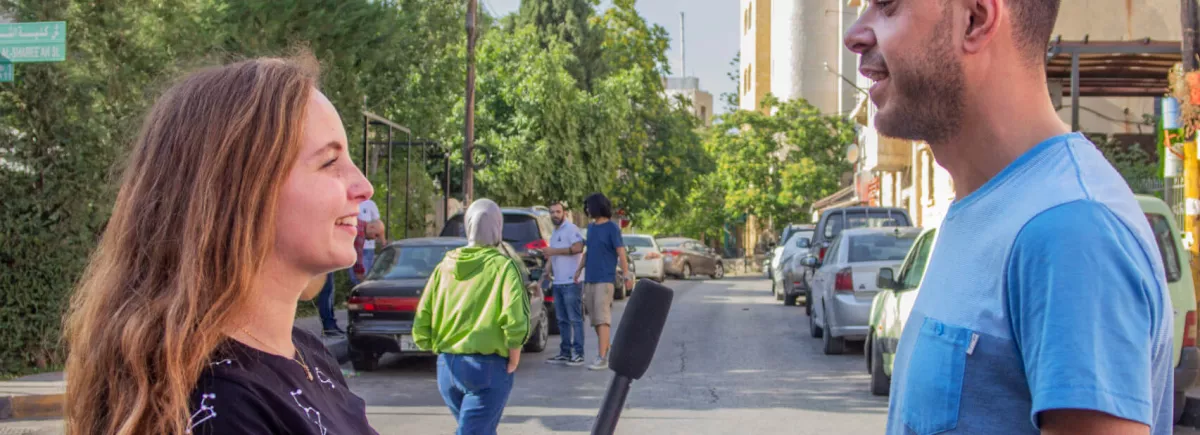
Supporting Mental Health in the Middle East
Related project
QaribIn a region marked by war, displacement, and political instability, independent media in the Middle East remain a vital source of truth and resilience.
Since 2020, the Qarib project, funded by the Agence Française de Développement (AFD) and implemented by CFI (Canal France International), has supported over 40 media outlets in Lebanon, Palestine, Jordan, and Iraq. Together, they have produced more than 4,000 journalistic pieces, reaching tens of millions of people.
Yet Qarib’s impact goes beyond content production. In a context where journalists frequently face trauma, loss, and psychological strain, the project has also made mental health support a priority.
The war on Gaza and its spillover into Lebanon has placed unprecedented pressure on journalists. Many have lost colleagues, loved ones, or have been displaced themselves. In Palestine alone, over 200 journalists have been killed. Despite these realities, mental health remains a taboo subject, and many professionals are hesitant to seek help.
To address this, Qarib launched a psychological support program led by trauma therapist Dr. Khaled Nasser, offering both group and individual counseling sessions. The initiative focused on stress and anxiety management, burnout prevention, trauma recovery, and coping with toxic work environments.
In 2023, as part of International Women’s Day, Qarib organized an offline workshop led by Dr. Nasser, specifically addressing the mental health challenges faced by female journalists in the field.
Qarib’s Community Sessions—covering mental health, digital security, and creative storytelling—have reached hundreds of journalists across the region. One dedicated session, led by Jordanian psychiatrist Dr. Mohammad Abu Slaih, provided practical “pre-tips” to help journalists prepare mentally before covering difficult stories, as well as strategies to manage emotional fatigue afterward. The session saw high engagement and included participants from Syria, Yemen, and Sudan, in addition to the program’s core countries.
Between January and September 2025 alone, Qarib partners produced 1,357 journalistic outputs, reaching over 91 million people and generating 6 million engagements. These figures highlight not only the scale of the project but also the resilience of local media operating under difficult conditions.
Recognizing the ongoing need, Qarib has extended its mental health support program until 2026. This long-term commitment reflects a broader understanding: journalistic integrity and public trust depend not only on editorial independence but also on the well-being of journalists and reporters.
In a media landscape increasingly shaped by trauma and disinformation, Qarib’s holistic approach—combining editorial support with psychological care—offers a model for sustainable, human-centered journalism.


